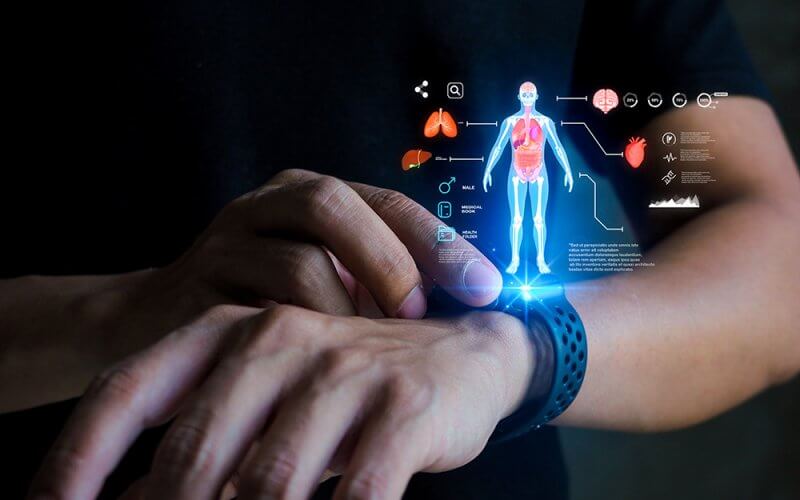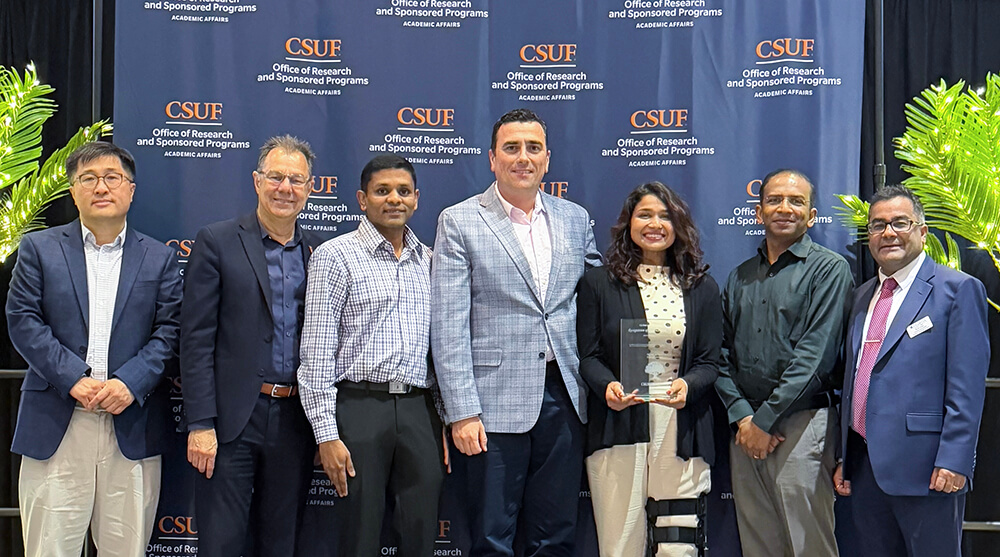
Cal State Fullerton has received a $353,506 grant from the U.S. Department of Defense to purchase new equipment and instruments to support interdisciplinary biomedical engineering research and education.
The cutting-edge tools open up new avenues of research for faculty and students that focus on medical applications and health care technology.
“This equipment is critical for advancing research in wearable biosensors and biomedical devices,” said Ankita Mohapatra, associate professor of electrical and computer engineering, who is directing the grant project.
Students interested in biomedical engineering careers are learning to use technology-driven tools at the forefront of innovation in biomedical labs, sensor development companies and advanced manufacturing environments.
The instruments include a materials printer, which is an inexpensive method for prototyping innovative circuits for wearable devices, and an atomic force microscope.
Mohapatra said the microscope is a powerful method for characterizing physical and mechanical behavior on a sub-nanometer scale for materials and has widespread use in scientific research.
With this equipment, students in the College of Engineering and Computer Science can design, prototype and test wearable health-monitoring devices, giving them hands-on skills in biosensors, materials science, electronics and real-time data analysis.
“Training students on this equipment gives them a significant competitive edge in industry and graduate research,” Mohapatra said. “Gaining experience with these instruments equips them with practical skills highly sought after by employers and research institutions.”

Mohapatra said faculty and students will use the equipment to design and test noninvasive, flexible sensors to monitor essential health biomarkers like hormone levels through sweat.
For example, the equipment allows faculty and students to print and test patches using innovative technology that stick to the skin and track body functions, including stress levels and metabolism.
“We’re able to explore new materials and print electronic circuits directly onto wearable surfaces, as well as characterize these devices at the nanoscale to ensure they perform reliably,” Mohapatra said.
“This research is foundational for early disease detection, personalized health monitoring and soldier readiness, aligning well with Department of Defense priorities.”
Students have the opportunity to design next-generation health monitors, learning how to turn an idea into a working device.
“These are exactly the skills sought after by companies in biomedical engineering, wearable health devices and even defense sectors,” she said.
While students are already learning to use the new equipment and instruments in research labs, these tools will be part of the college’s new ECS Innovation Hub bioengineering research and education program.
Construction is planned to begin in June, with the ECS Innovation Hub expected to open by fall 2027.
Kiran George, associate dean for graduate programs, faculty research and innovation and professor of electrical and computer engineering, is collaborating on the grant project. His background includes bio-signal processing and assistive technology.
Other faculty members involved are Sagil James, professor of mechanical engineering, whose research interests focus on advanced manufacturing and biomanufacturing; and Stevan Pecic, associate professor of chemistry and biochemistry, who specializes in DNA-based biosensors.
With the addition of the new equipment and faculty research collaboration, George said the college is building the capacity to expand the curriculum and develop new courses with a biomedical engineering focus.